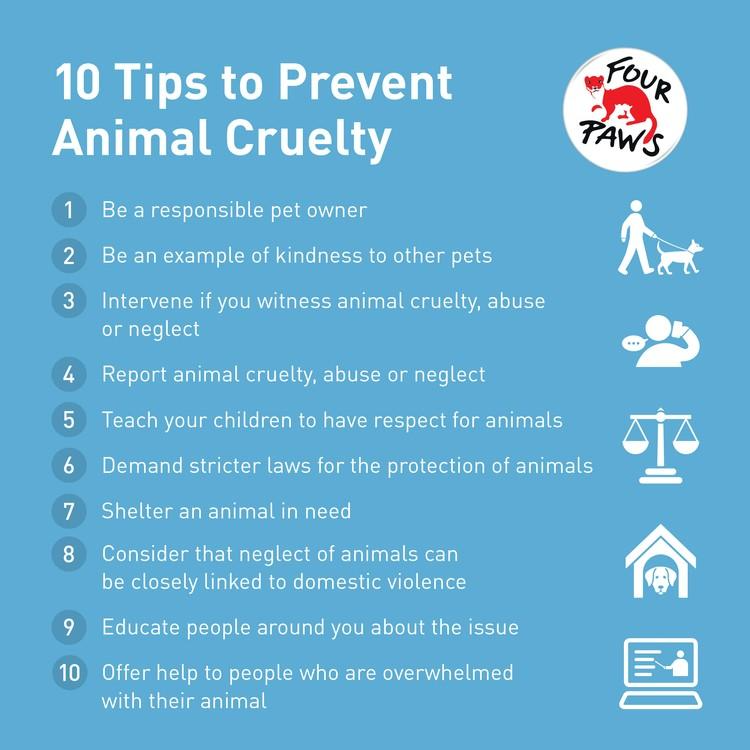Animal cruelty is a pervasive issue that afflicts countless creatures across the globe. It manifests in various reprehensible forms such as neglect, abuse, exploitation, and the destruction of habitats. To address this urgent concern, individuals and communities must arm themselves with knowledge and proactive strategies. This complete guide delineates effective methods for preventing cruelty to animals, thereby fostering a compassionate world where all beings can thrive.
Understanding Animal Cruelty
Before delving into preventive measures, it is crucial to comprehend the multifaceted nature of animal cruelty. It encompasses a range of behaviors from individuals harming animals directly, to systemic issues such as factory farming and poaching. By recognizing the different facets of this issue, we can better position ourselves to combat it effectively.
Education and Awareness
The cornerstone of transforming societal attitudes towards animals lies in education. Awareness campaigns play a pivotal role in enlightening the public about the realities of animal cruelty. Schools, communities, and social media platforms can be harnessed to disseminate knowledge about responsible pet ownership, the consequences of animal neglect, and the importance of wildlife conservation. Simple acts, such as sharing informative content or hosting workshops, can ignite a ripple of awareness throughout society.
Responsible Pet Ownership
To prevent cruelty at the domestic level, it is essential to advocate for responsible pet ownership. This entails understanding the specific needs of different animal species and breeds. Prospective pet owners should be thoroughly informed about the time, financial resources, and emotional commitment necessary for caring for animals. Further, spaying or neutering pets reduces overpopulation, which is a significant factor in animal abandonment and neglect.
Support Animal Welfare Organizations
Supporting animal welfare organizations is another vital avenue for combating cruelty. These organizations work tirelessly to rescue, rehabilitate, and rehome abused animals. Volunteerism, donations, and participation in events can amplify their efforts. Moreover, advocating for legislative changes through such organizations can lead to stronger protections for animals. Individuals can lobby for stricter laws that penalize abusers and promote humane treatment practices.
Adopt, Don’t Shop
The plight of animals in shelters is exacerbated by the demand for pets from breeders and pet stores. By adopting animals from shelters, people not only provide a loving home to a desperate creature but also decrease the profit-motivated breeding practice. Promoting the message of “Adopt, Don’t Shop” can help reduce the number of animals brutally mistreated in puppy mills and other unethical breeding operations.
Advocate for Legislative Change
Legal recourse is paramount in the fight against animal cruelty. Individuals can engage in advocacy to influence policy decisions at local, state, and national levels. This may include petitions aimed at bolstering animal protection laws or advocating for stronger enforcement of existing regulations. Engaging with lawmakers and providing compelling evidence of the necessity for stricter laws can lead to significant improvements in the safety and welfare of animals.
Community Involvement
Community initiatives can drive meaningful change in the treatment of animals. Establishing neighborhood watch programs can deter abuse by increasing vigilance and reporting mechanisms. Educational programs within community centers can inform citizens about animal rights and the impact of their choices on animal welfare. Collaborating with local businesses to sponsor humane events can further strengthen community bonds while promoting a responsible ethos.
Promoting Veganism and Sustainable Practices
Promoting plant-based diets and sustainable living practices is another crucial component in the prevention of animal cruelty. The factory farming industry is notorious for its inhumane treatment of animals. By choosing to adopt a vegan or vegetarian lifestyle, individuals can effectively reduce the demand for such industries. Educating others about the benefits of ethical eating can help transform dietary norms and promote a more humane society.
Encouraging Ethical Entertainment
Entertainment industries often exploit animals for profit. From circuses to films, the use of animals in entertainment poses numerous ethical concerns. Supporting organizations that promote animal-free entertainment, such as humane circuses or documentaries that ethically portray animals, helps shift societal norms. Advocating against practices that exploit or endanger animals for human enjoyment can lead to a broader cultural acknowledgment of the rights of animals.
Using Social Media for Advocacy
In today’s digital age, social media serves as a powerful tool for animal advocacy. Platforms such as Instagram, Twitter, and Facebook can be used to raise awareness, share stories, and mobilize groups. Campaigns that harness the viral potential of social media can attract substantial attention to local and global issues related to animal cruelty. Creating compelling, shareable content can inspire collective action and encourage followers to become advocates for animal rights.
Collaborative Efforts
Preventing animal cruelty is a collective endeavor that requires collaboration across various sectors. This includes joining forces with right-based groups, local governments, law enforcement, and educators. By creating a coalition that spans multiple sectors, initiatives can become far-reaching and more powerful, ensuring that no animal is left vulnerable to cruelty.
Conclusion
To prevent cruelty to animals, a multifaceted approach is necessary. Through education, responsible ownership, community engagement, and robust advocacy, individuals can collectively work towards a more compassionate world. Each small action—whether it be adopting a pet, supporting a local animal rescue, or sharing knowledge—can have a profound impact on the lives of animals. Together, we can create an environment that honors the dignity and wellbeing of all creatures.








